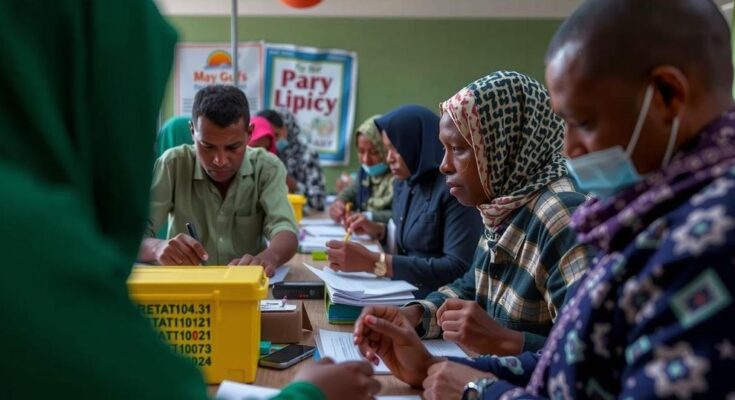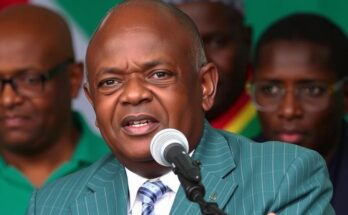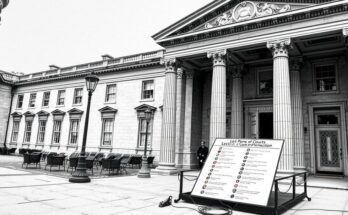Vote counting has begun in Somaliland after a peaceful presidential election with over 1 million voters participating. NEC reports no incidents during voting, while candidates focus on democracy, economic growth, and gaining international recognition. Tensions between Somalia and Ethiopia complicate the political landscape as Somaliland strives for acknowledgment of its independence.
Vote counting has commenced in Somaliland following a generally smooth presidential election held on Wednesday. The Somaliland National Electoral Commission (NEC) reported that the polls, which closed at 6 p.m. local time, saw over 1 million registered voters participating across roughly 2,000 polling stations. NEC Chairman Muse Hassan Yusuf confirmed that minor technical issues encountered at some polling stations have been resolved, and that results will be announced by November 21. General Mohamed Adan Saqadhi, head of the Somaliland Police Force, noted the election occurred peacefully with no reported incidents, stating, “Thanks to Allah, the election took place democratically and peacefully. No incident was reported.” Three candidates vied for the presidency, with incumbent President Muse Bihi Abdi of the ruling Kulmiye party seeking re-election against Abdirahman Mohamed Abdullahi (Waddani Party) and Faisal Ali Warabe (Justice and Development Party). Each candidate committed to enhancing democracy, fostering economic growth, and achieving international recognition for Somaliland. This election marks the fourth since the region declared independence in 1991, although it has not yet gained global recognition. Concurrently, tensions persist between Somalia and Ethiopia over a leasing agreement that Ethiopia signed with Somaliland, sparking controversy and opposition from Somalia, which views the deal as a threat to its sovereignty. Despite diplomatic tensions, the Somaliland electoral process has upheld a peaceful standard amid ongoing international disputes, further highlighting the complex geopolitical dynamics of the region.
Somaliland is a self-declared independent region of Somalia that has maintained a functioning government, democratic political processes, and its own institutions since breaking away from Somalia in 1991. Despite establishing its own currency and military, Somaliland’s independence has not been globally recognized, which influences its political dynamics and aspirations. The recent presidential election underscores the region’s ongoing efforts to achieve recognition amid complex relationships with Somalia and Ethiopia, particularly due to Ethiopia’s controversial leasing agreement with Somaliland.
The recent presidential election in Somaliland concluded without incident, reflecting a commitment to democratic principles despite regional tensions with Somalia and Ethiopia. This event stands as a testament to Somaliland’s political stability and self-governance, as candidates focus on economic growth and international recognition. As the counting of votes progresses, outcomes will shape the future of this unrecognized but politically active region.
Original Source: www.voanews.com




